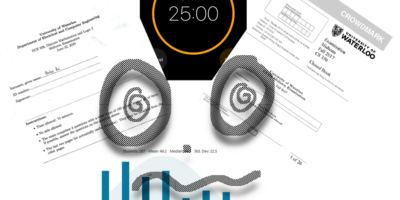There are three facets to this referendum topic one should understand to vote yes: that the academic institutions listed in the referendum are complicit in human rights violations, that an academic boycott is an effective way to address this, and that it is our place as students to take a stand against these violations. I am going to use this opportunity to address each of these points and convince you of them.
First we must believe that human rights violations exist in Israel-Palestine. The evidence for this is readily available and widely circulated. Israel is in violation of international laws and United Nations resolutions. Human rights organizations such as Amnesty International and Human Rights Watch have issued countless reports which list the ongoing abuses of human rights and the unfair treatment of Palestinians taking place currently. Based on recent UN General Assembly votes, the international community outside of North America is in consensus about this. These are facts widely available and this is not what I am here to prove. What I’m trying to prove is the relevance to the academic institutions we are being asked to boycott.
In order to understand the connection between the Israeli occupation and these academic institutions, we must first understand that academia does not exist in a bubble. They are political, and hence there are political motives and implications behind everything that occurs in academic institutions. These implications affect the research conducted at universities and even dictate who studies at these institutions. Further, those who fund the research may be interwoven in a political motive of some nature.
Case in point: last week, Canadian Prime Minister Justin Trudeau praised UW at the World Economic Forum. Our university has a place on the international stage, and there are direct political implications of things that take place on our campus. The same is true of these Israeli institutions.
There are political implications of the work done at these universities. And unfortunately, this work currently supports and helps to further illegal Israeli occupation in the West Bank as well as the siege of Gaza. Out of the five institutions, UW’s main partnership is with the Technion — Israeli Institute of Technology. This is the institution which helped develop the bulldozer used to demolish Palestinian homes and build settlements in the West Bank which, again, is in direct violation of international law. Students at these institutions have been arrested for speaking out against government policies. Academics who have shared dissenting views at these institutions have faced repercussions.
Nobel Peace Prize Laureate and Archbishop Desmond Tutu whose work was instrumental in ending the apartheid regime in South Africa stated, “Israeli Universities are an intimate part of the Israeli regime by active choice. While Palestinians are not able to access universities and schools, Israeli universities produce the research, technology, arguments and leaders for maintaining the occupation.” Israeli institutes are also complicit in maintaining the state of apartheid in Israel, containing the fourth-largest army in the world, with every Jewish Israeli, male and female, required to serve in the military. Due to the hyper-militarization of this society, the academy is very intimately involved in this occupation.
Universities are not immune from what goes on around them—they do not get a free pass as being above politics. In Canada, we need only look at our recent history of residential schools to remember that education can, and often does, play an extremely brutal role in furthering the political motives of governments.
Okay, so human rights violations exist in Israel-Palestine and these universities are implicated in these violations. What is the role of an academic boycott? This referendum is part of a larger global movement, known as BDS (Boycott, Divestment, and Sanctions). BDS is a call put out by Palestinian civil society in 2005 as a peaceful, non-violent way to address the Israeli occupation. It hopes to put external pressure on the Israeli government in order to force Israel to comply with international law. The movement is inspired by a similar movement which was used in the era of South African apartheid and was instrumental in bringing down the apartheid regime. The BDS movement is over ten years old, and has gained international momentum during that time as well as notable support from individuals such as Stephen Hawking and Desmond Tutu.
Academic boycott, which is one aspect of the larger BDS movement, seeks to address the role of Israeli institutions in furthering the illegal occupation as well as to recognize the unequal access to education in Israel-Palestine. Opponents to the boycott often cite the loss of academic freedom as a key reason to vote no.
However, this argument fails when you consider that there is already a lack of academic freedom for Palestinians living under the West Bank. First, students are often forced to go through military checkpoints simply to attend school. Second, Israeli students are only taught one side of the conflict for their entire education — they have been taught to ignore centuries of Palestinian history, society, civilization and land. Finally, both Israeli and Palestinian academics have become unable to speak out against the occupation for fear of job loss or worse.
Even here at UW, the existing exchange programs with Israeli institutions are not open to all UW students. Many UW students, particularly Palestinian students, are unable to access these opportunities because visas to Israel are determined on the basis of ethnicity, rather than citizenship. This violation of academic freedom is happening directly on our campus.
What does this have to do with UW students? UW has partnerships with these institutions. We are conducting research, setting up exchange programs, and actively collaborating with them. In essence, we are endorsing their work. Endorsing work which is resulting in the direct loss of lives. We can’t enter into these partnerships and then claim that we are “neutral”. And we cannot enter into partnerships and then claim that we are not endorsing this work. Finally, we as students cannot allow the administration to speak on our behalf.
Student movements have always played a significant role in social movements and creating change. In recent years, the Quebec student strike resulted in the resignation of the province’s Premier. Last fall, student protests against racism at the University of Michigan resulted in the resignation of the university president. Student protests across American universities around their government’s role in the Vietnam War were significant in ending the war. If we are aware that these human rights violations are occurring and we are aware of our role in them, then the question is: what are we choosing to do? If the answer is nothing, then we are inherently taking a side.
Voting yes in this referendum is an opportunity to make a collective statement regarding our belief in justice and equality. It is a chance to say that UW students are intelligent and aware of the world around us, and are willing to challenge the status quo to take a stand which will be remembered throughout history.




Leave a Reply